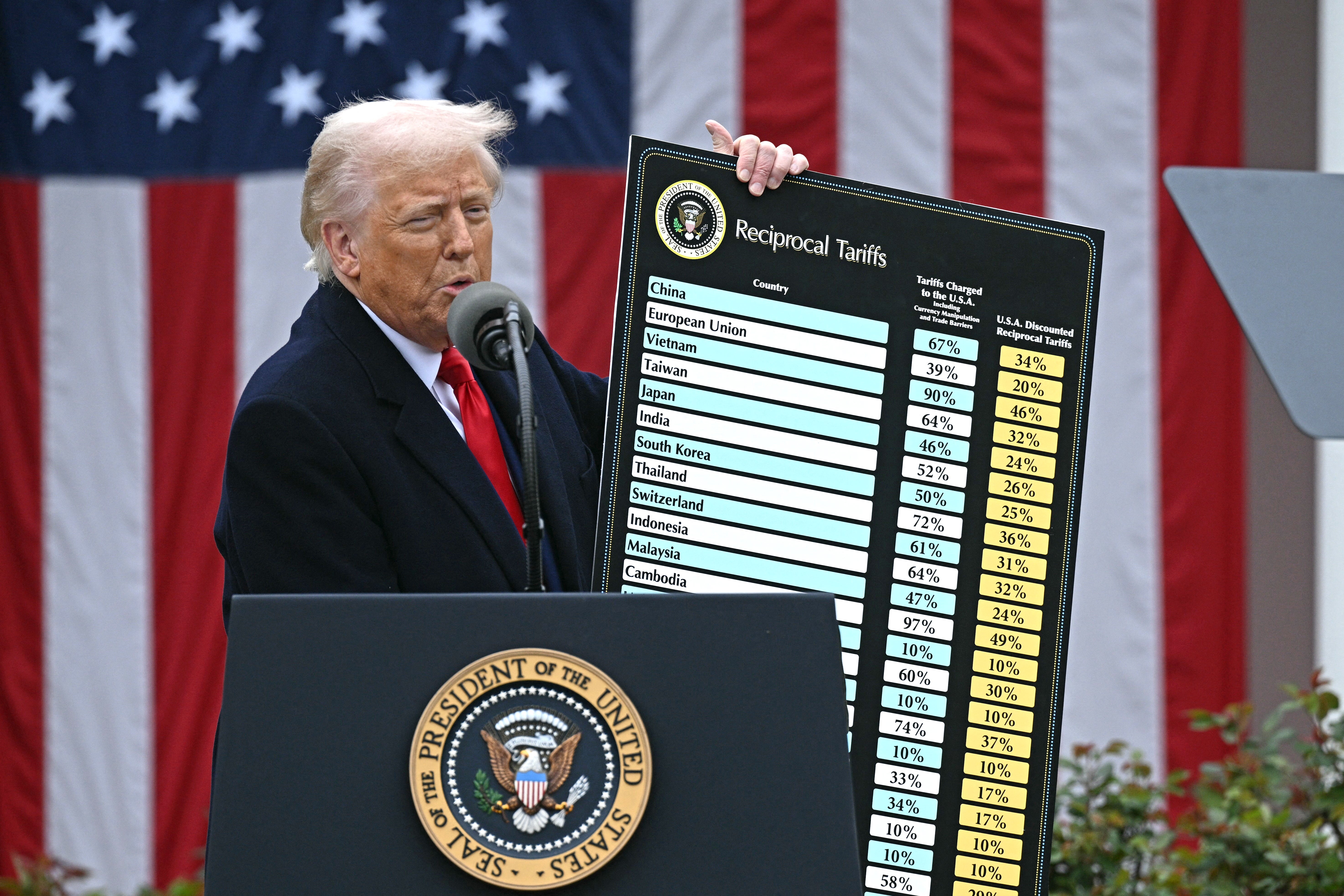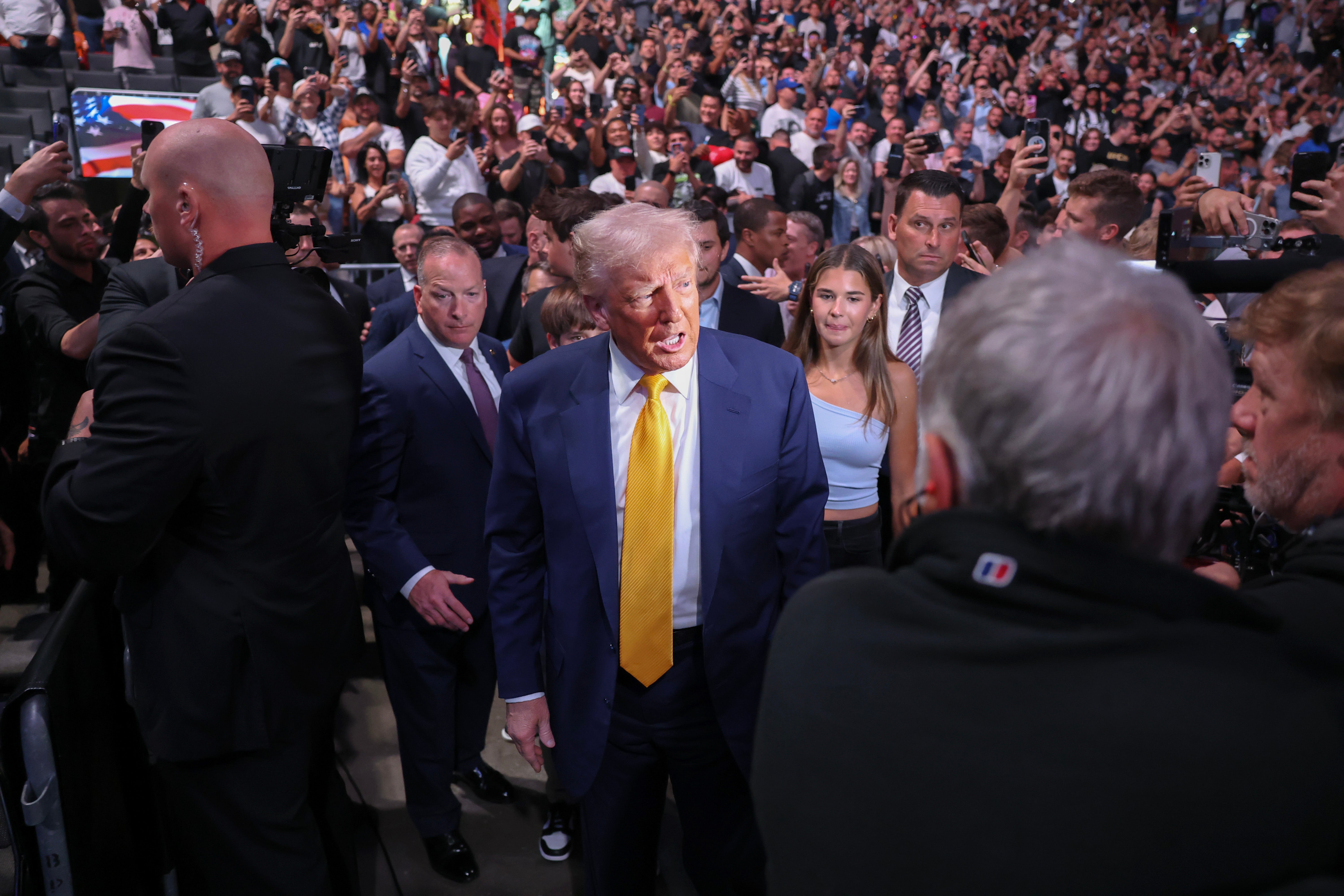The public overwhelmingly believe that the wealthiest Americans and large corporations will benefit the most as Donald Trump seeks to re-orient the American economy through a dizzying, rapidly shifting trade strategy.
In a CBS News poll released Sunday, three in four U.S. adults said they believed America’s richest people will be the biggest winners of the realignment of the U.S.’s trade policy, while 71 percent said “large corporations” would also benefit. A crucial gap exists between the share of Americans who believe “corporations” will see economic boons and the share who believe that U.S. manufacturing will return, as just half of Americans believe the auto industry will benefit and an even lower share, 42 percent, said that working class families will benefit long-term.
The same poll found that the percentage of Americans who say that the president’s policies are making them poorer is more than twice as high — 49 percent to 21 percent — as the share of Americans who say their finances are doing better as a result of Trump’s efforts.
Both results could be worrying for Republicans who are already seeing Democrats — particularly younger and more progressive members of the party frustrated with leadership — already organizing in anticipation of next year’s midterm elections.

It could also affect the fears of moderate Republicans in Congress, who are facing a tough choice in the coming weeks. With the House of Representatives voting on Thursday to advance the budget reconciliation process with approval of a framework authored by the Senate, both chambers of Congress are moving closer to a vote on the final Republican budget proposal now being crafted by House and Senate appropriators.
A previous framework approved by the House called on the committee overseeing Medicaid to come up with $880 billion in spending cuts for the final budget proposal, a sum that would have to include reductions to Medicaid funding to be met.
Those cuts would be politically dangerous for vulnerable Republican members in frontline districts and swing states, leading some to come out warning in advance that they will not support any final budget resolution with cuts to the Medicaid program. The narrow GOP majorities in the House and Senate mean that congressional Republican leaders can only suffer a small handful of defections in either chamber.

Another troubling result in the CBS poll for those moderate Republicans: a clear majority of independents believe that Trump has no firm strategy when it comes to the implementation of tariffs.
Republicans and Democrats fall into predictable categories on this question, but 57 percent of voters not aligned with either party say the president is essentially making it up as he goes along.
Should stock markets continue to slide in the coming days, it could be a sign that investors agree with that prognosis. Late Friday, Customs and Border Protection issued a notice containing the president’s latest tariff policy reversal: an exemption for smartphones, solar cells, semiconductor-based storage and other tech-related imports granting the sector a reprieve from both Trump’s climbing “reciprocal” tariffs and baseline duties of 10 percent on imports. Trump officials assured Americans in interviews over the weekend that those exemptions were only for a month or two — but again, no exact date or specificity for the policy was offered.
CBS’s poll surveyed 2,410 adults living across the United States between April 8-11. The sample group’s margin of error is 2.4 percentage points.

 1 day ago
4
1 day ago
4








